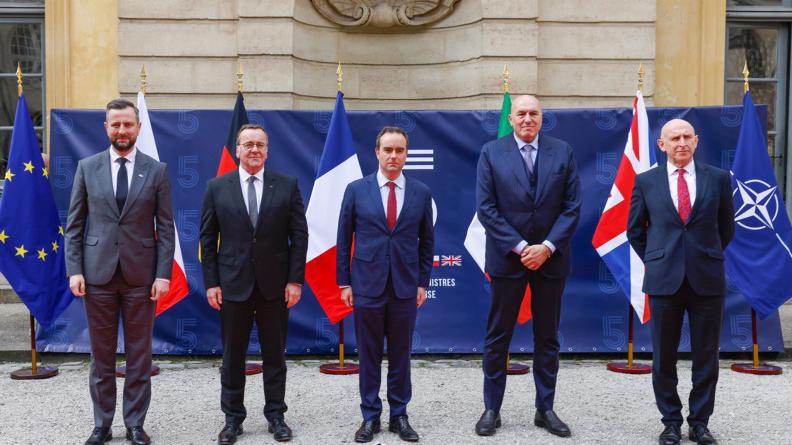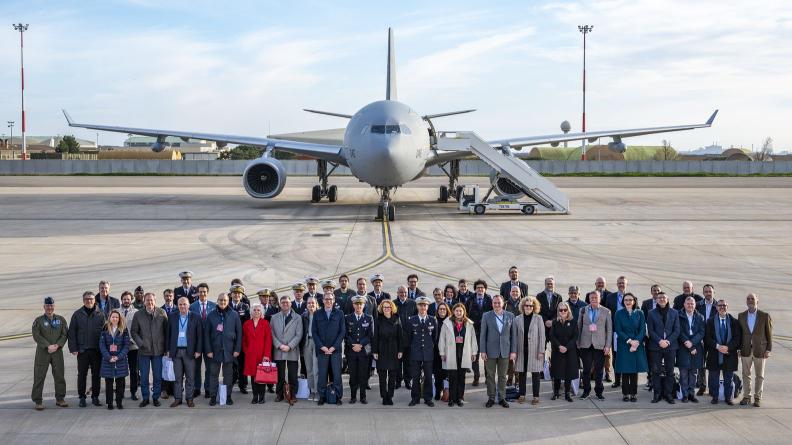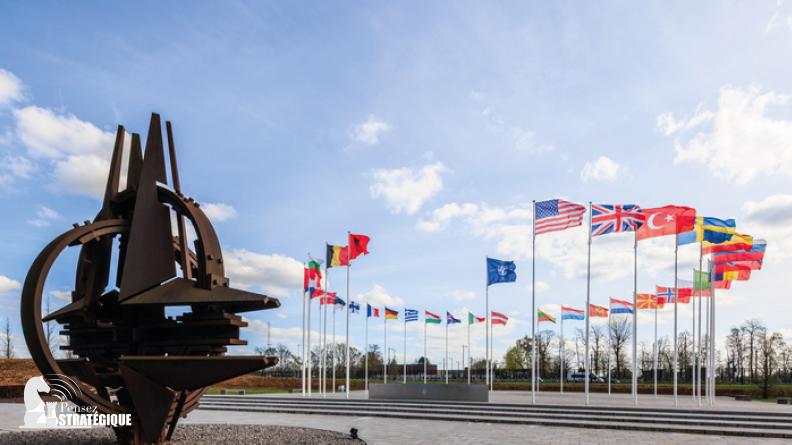[Podcast] 75 Years of NATO: The Transatlantic Relationship Standing the Test of Time [1/2]
On 4 April, the North Atlantic Treaty Organisation (NATO) celebrated its 75th anniversary. A celebration that came in an exceptional context for the Alliance following Russia’s invasion of Ukraine. Here we review the past and present events of the Alliance, which has demonstrated its ability to adapt to the changing geopolitical landscape.
Why was NATO founded in the aftermath of World War II? How did it evolve after the collapse of the Soviet Union? What has changed with the war in Ukraine? To answer these questions, presenter Daniel Desesquelle speaks to:
- Muriel Domenach, Ambassador, Permanent Representative for France on the North Atlantic Council
- Admiral Henri Schricke, French Military and Defence Representative to NATO and the European Union
- Camille Grand, Former Assistant Secretary General of the North Atlantic Alliance from 2016 to 2022
Origins of NATO
To Muriel Domenach, “in a way, the formation of the Atlantic family has its origins in the Allied Landings [on 6 June 1944], the 80th anniversary of which we recently commemorated. (...) At the end of World War II, the American, British, French and Canadian allies wanted to forge a lasting alliance to avoid new wars in Europe.” After the signing of several mutual assistance treaties (the 1947 Treaty of Dunkirk and the 1948 Treaty of Brussels), NATO was founded in 1949. “It establishes the American presence in Europe and the U.S. security guarantee. (…) Article 5 of the Treaty is the Organisation’s cornerstone. Known as the ‘musketeer clause’, it provides that if a NATO Ally is the victim of an armed attack, the members will assist that Ally, including through the use of armed force,” adds Muriel Domenach.
NATO’s 1991 Transformation
In 1991, the USSR was dissolved, giving way to the Russian Federation. For NATO, the period that followed was that of the ‘peace dividends’. Relations between the Western and Russian blocs eased. Muriel Domenach remembers the 1990s and 2000s which saw “the creation of a NATO-Russia Council with a whole series of working, cooperation and dialogue groups. (...) There was this dual movement, with NATO attracting Central and Eastern European countries, while a framework emerged for dialogue and cooperation with Russia.” For his part, Camille Grand explains how “the period after the Cold War was also one of external intervention when NATO conducted out-of-area operations, i.e. moving outside its role defending the European continent to take part in crisis management missions, first in the Balkans, then in Afghanistan and Libya, for example.”
The war in Ukraine reshuffles the cards
“In 2022, following Russia’s attack on Ukraine, NATO went back to basics, i.e. to its role in the collective defence of the European continent,” stresses Camille Grand. This war in Europe reignited the risk of conflict on Alliance territory. In this context, “NATO reverted to its core activity of defending Europe to prevent the risk of horizontal escalation,” affirms Camille Grand. “But without turning the war into a conflict between NATO and Russia.” The deterrent and defence capabilities of the Alliance revived its attraction. Finland and Sweden joined in 2024, “two countries with a strong tradition of neutrality but which, in the current context, have chosen to join the Atlantic Alliance,” adds the former Assistant Secretary General. In 75 years, the number of Member States has risen from 12 in 1949 to 32 today.
[Podcast] 75 Years of NATO: The Transatlantic Relationship Standing the Test of Time [2/2]
Read the article
Featured
Ukraine: E5 defence ministers reassert their support
As the conflict in Ukraine continues, the defence ministers of the E5 group (France, Germany, Poland, Italy...
March 14, 2025

NATO Ambassadors Visit Istres Air Force Base
On 6 March 2025, the ambassadors from the NATO (North Atlantic Treaty Organisation) Allies visited the Istr...
March 10, 2025

[Podcast] 75 Years of NATO: The Transatlantic Relationship Standing the Test of Time [2/2]
The war in Ukraine has refocused the North Atlantic Treaty Organisation (NATO) on its primary mission: the ...
July 11, 2024
